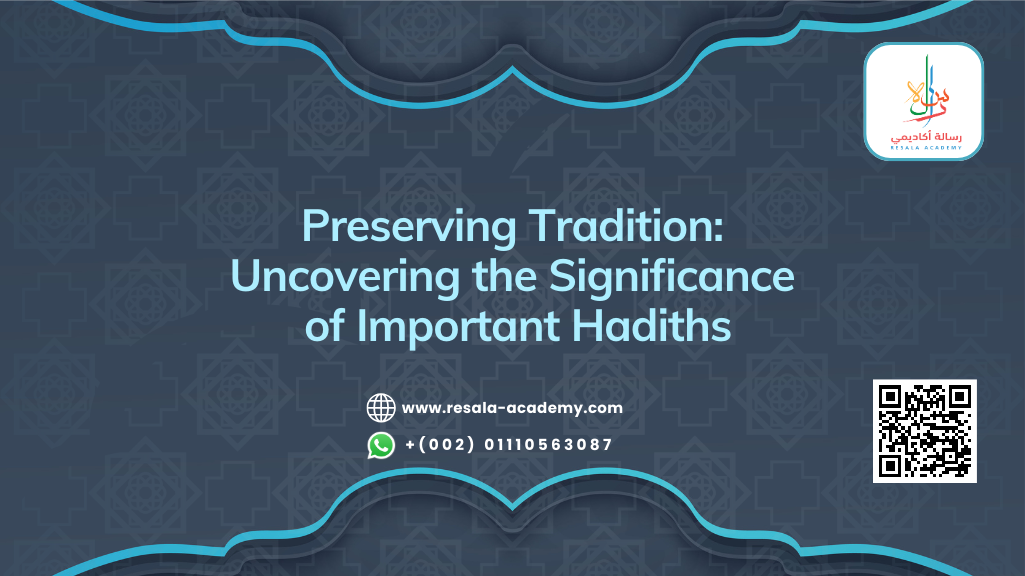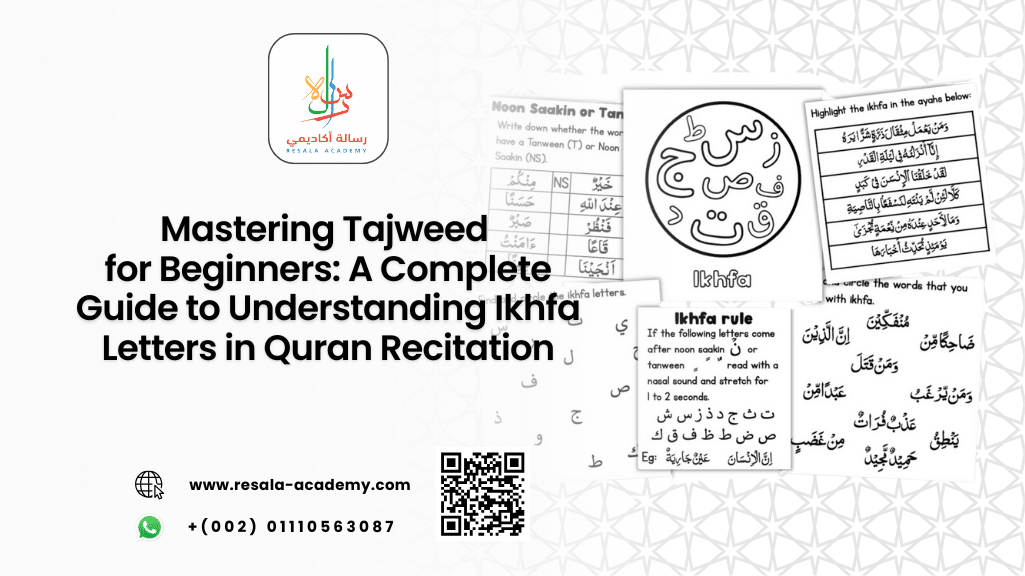Table of Contents
Preserving Tradition: Uncovering the Significance of Important Hadiths
In the vast tapestry of Islamic tradition, there exists a treasure trove of wisdom and guidance known as important hadiths. These precious sayings and teachings are attributed to the Prophet Muhammad (peace be upon him) and provide Muslims with invaluable insights into various aspects of life.
But what exactly are hadiths, and why are they so significant? In this blog post, we will delve into the world of hadiths, exploring their compilation process, their impact on different branches of Islam, and uncovering the true significance behind some important ones.
So join us on this journey to preserve tradition and unlock the wisdom contained within these sacred texts.
Understanding the Compilation of Hadiths
Hadiths are an integral part of Islamic tradition, providing guidance and insights into the teachings and practices of Prophet Muhammad (peace be upon him). The compilation process of hadiths was crucial in preserving these teachings for future generations.
The first step in compiling hadiths involved the collection of oral traditions concerning the words, actions, and approvals of Prophet Muhammad. These were gathered by his companions who witnessed or heard directly from him. Their meticulous efforts ensured that accurate accounts were recorded.
To ensure authenticity, scholars meticulously examined each narration’s chain of transmission (isnad) to verify its reliability. This process involved scrutinizing the character and credibility of each narrator. Only those with impeccable integrity were considered trustworthy enough for inclusion.
After verifying their authenticity, scholars compiled these narrations into comprehensive collections known as hadith compilations or books. Some well-known collections include Sahih Bukhari, Sahih Muslim, Sunan Abu Dawood, Jami` at-Tirmidhi, Sunan Ibn Majah, and Musnad Ahmad ibn Hanbal.
By understanding how hadiths were compiled, we gain insight into their significance as a valuable source for understanding Islam’s principles and practices. The dedication and rigorous methodology employed by early scholars have allowed us to access this invaluable treasure trove today.
As Muslims seeking knowledge about our faith or non-Muslims interested in learning more about Islam’s rich tradition and teachings – it is essential to appreciate the significance behind these important compilations that continue to guide believers worldwide.
Exploring the Impact and Components of Hadiths
Understanding the impact and components of Hadiths is crucial in comprehending their significance within the Islamic tradition. Hadiths are not only a source of religious guidance but also serve as a means to preserve the teachings and practices of Prophet Muhammad (peace be upon him).
The impact of Hadiths can be seen through their influence on shaping Islamic law, known as Shariah. Scholars rely on authenticated Hadiths to derive rulings on various aspects of life, including worship, transactions, marriage, and more. This reliance ensures that Muslims adhere to the teachings of Islam in all spheres.
Hadiths consist of two main components: the main (content) and the isnad (chain of narrators). The matn contains the actual words or actions attributed to Prophet Muhammad while the isnad provides a chain tracing back each narrator who transmitted it. These components play a vital role in determining the authenticity and reliability of a Hadith.
Additionally, exploring different branches within Islam reveals how Hadiths have been categorized based on their content or context. Some branches focus specifically on legal matters like fiqh-related Hadiths, while others concentrate on ethical guidance or stories about Prophet Muhammad’s character.
Delving into these impacts and components allows us to appreciate how important hadiths continue to shape both personal spirituality and wider societal norms within Muslim communities worldwide. By preserving this rich tradition passed down through generations, we can ensure that our understanding remains authentic and rooted in prophetic traditions without compromising its relevance for contemporary times.
Hadiths in Different Branches
– Fiqh: Hadiths play a crucial role in Islamic jurisprudence, providing matters of religious law and moral conduct.
– Tafsir: Hadiths are used to help interpret and understand the meanings of the Quranic verses.
– Aqeedah: Hadiths form an essential foundation for beliefs and doctrines within Islam.
– Sirah: Hadiths offer valuable insights into the life and teachings of Prophet Muhammad (peace be upon him).
– Tarikh: Hadiths serve as historical sources, shedding light on significant events during the time of Prophet Muhammad (peace be upon him) and his companions.
Unveiling the Significance of Important Hadiths
Hadiths play a crucial role in Islamic tradition, providing valuable insights into the teachings and practices of Prophet Muhammad (peace be upon him). These recorded sayings, actions, and approvals serve as a guiding light for Muslims worldwide. But what makes certain hadiths important? Let’s delve into their significance.
Important hadiths often shed light on critical religious obligations. They provide clarity on matters such as prayer, fasting, pilgrimage, and charity – fundamental pillars of Islam. This helps believers adhere to these obligations with precision and sincerity.
Significant hadiths also address various ethical principles that guide personal conduct. They emphasize kindness towards others, honesty in dealings, and respect for parents and elders – virtues essential for fostering harmonious relationships within society.
Important hadiths act as a source of inspiration by recounting stories of the Prophet’s exemplary character. These narratives not only offer motivation but also teach valuable lessons about resilience in times of hardship or challenges faced by early Muslims.
Key hadiths impart wisdom regarding spiritual growth and self-improvement. They guide seeking knowledge, developing patience during trials, finding solace through remembrance of Allah (SWT), and maintaining good intentions in all endeavors.
Understanding the significance behind these important hadiths allows us to appreciate their timeless relevance in our lives today. By incorporating them into our daily routines and decision-making processes while keeping their context intact ensures we stay connected to our traditions while facing modern challenges head-on.
Hadiths about Daily Life and Practical Guidance
Hadiths play a crucial role in providing Muslims with practical guidance for their daily lives. These sayings of the Prophet Muhammad (peace be upon him) offer insights into various aspects, from personal hygiene to etiquettes of social interactions. Let’s explore some important hadiths that provide valuable guidance for Muslims.
1. The importance of cleanliness: One hadith states, “Cleanliness is half of faith.” This emphasizes the significance of maintaining cleanliness in our physical appearance and surroundings, promoting both physical and spiritual well-being.
2. Kindness towards others: The Prophet Muhammad (pbuh) taught us to spread kindness by saying, “The best among you are those who are best to others.” This encourages Muslims to treat everyone with respect, compassion, and fairness.
3. Honesty and integrity: A famous hadith reminds us that “Truthfulness leads to righteousness,” emphasizing the value of honesty in all aspects of life – whether it is fulfilling promises or practicing transparency in business dealings.
4. Taking care of family: Hadiths also emphasize the importance of maintaining strong ties with family members. For instance, an important narration highlights that “The most beloved deed to Allah is making a Muslim happy.”
These hadiths serve as timeless reminders for Muslims about how they can lead righteous lives guided by Islamic principles in their day-to-day activities.
Preserving the Relevance of Hadiths in Modern Times
In a rapidly changing world, it is essential to preserve the relevance and importance of hadiths in modern times. These timeless teachings from Prophet Muhammad (peace be upon him) provide valuable guidance for Muslims navigating the complexities of contemporary society.
By understanding and studying hadiths, we can apply their wisdom to address current issues and challenges faced by Muslims worldwide. The principles contained within these traditions offer practical solutions for individuals seeking guidance on topics such as ethics, social justice, family life, and personal development.
Preserving the relevance of hadiths involves making them accessible to all. With advancements in technology, online platforms like Resala Academy have made it easier than ever before to access authentic Islamic knowledge through online courses. This enables people from diverse backgrounds to engage with hadith literature and gain a deeper understanding of its significance in their lives.
Furthermore, incorporating hadith teachings into our daily lives is crucial for upholding Islamic values amidst modern influences. By internalizing these teachings and implementing them in our actions and interactions with others, we can strive towards personal growth while also contributing positively to our communities.
Preserving the relevance of hadiths requires ongoing efforts from scholars who meticulously study and authenticate these traditions. Through rigorous scholarship methodologies like isnad analysis (chain of narrators), scholars ensure that only authentic sayings are attributed to Prophet Muhammad (pbuh), maintaining their integrity over time.
By recognizing the continued importance of hadiths in modern times and actively engaging with them through education and application in daily life, Muslims can uphold this rich tradition while navigating today’s complex world.
Resala Academy Offers Online Islamic Studies Courses
Resala Academy is a leading institution that offers online Islamic studies courses to individuals seeking to deepen their knowledge and understanding of Islam. With a wide range of comprehensive courses available, Resala Academy provides an accessible platform for students from all walks of life to engage with the teachings and principles of Islam.
The academy’s online courses cover various aspects of Islamic studies, including Quranic studies, Hadith literature, fiqh (jurisprudence), tafsir (interpretation), and Arabic language. Each course is carefully curated by experienced scholars who bring their expertise and passion for teaching to the virtual classroom.
One key advantage of Resala Academy’s online courses is the flexibility it offers. Students can access course materials at their own pace and convenience, allowing them to fit their studies around other commitments such as work or family responsibilities. This makes it an ideal option for busy individuals who are unable to attend traditional brick-and-mortar classes.
Moreover, Resala Academy employs modern e-learning technology to create an interactive learning environment. Students have access to discussion forums where they can engage in meaningful conversations with fellow learners and instructors. Additionally, regular assessments ensure that students stay on track with their learning objectives.
By offering these online Islamic studies courses, Resala Academy enables individuals from around the world to gain a deeper understanding of Islam while preserving tradition in a modern context. Whether you are a beginner looking for an introduction or someone seeking advanced knowledge in specific areas, Resala Academy has something for everyone interested in expanding their horizons within Islamic scholarship.
FAQs
1. What are Hadiths?
Hadiths refer to the sayings, actions, and approvals of Prophet Muhammad (peace be upon him). They serve as a significant source of guidance for Muslims, alongside the Quran.
2. How were Hadiths compiled?
After the demise of Prophet Muhammad (pbuh), his companions meticulously preserved his teachings through oral transmission. Later, scholars undertook immense efforts to compile these narrations into written collections known as Hadith compilations.
3. Why are Hadiths important in Islam?
Hadiths provide practical guidance on various aspects of life, including worship rituals, ethics, social behavior, and legal matters. By adhering to authentic Hadiths, Muslims can follow in the footsteps of their beloved Prophet and embody his teachings in their daily lives.
4. How can we ensure the authenticity of a Hadith?
Scholars employ rigorous methods to determine the authenticity or reliability of a Hadith’s chain of narration (isnad) and its content (matn). Through this meticulous evaluation process known as “Hadith authentication,” they categorize narrations into different levels such as Sahih (authentic), Hasan (good), or Da’if (weak).
Conclusion
In a world that is constantly evolving, it is crucial to preserve our traditions and teachings. Hadiths play a vital role in the Islamic faith, offering guidance, inspiration, and practical advice for believers. Understanding the compilation of hadiths and exploring their impact and components has given us valuable insights into our rich heritage
Throughout different branches of Islam, important hadiths have been passed down through generations. These narrations shed light on various aspects of life – from matters of spirituality to social interactions – providing a comprehensive framework for Muslims to lead fulfilling lives.
The significance of important hadiths cannot be overstated. They serve as timeless teachings that address contemporary challenges while remaining firmly rooted in tradition. Whether it is about maintaining good character or establishing strong family bonds, these sayings offer invaluable wisdom that continues to resonate with believers across the globe.
Hadiths related to daily life provide practical guidance on how to navigate various situations we encounter every day. From etiquettes of eating and dressing modestly to guidelines on interacting with others respectfully, these teachings help us strike a balance between our religious obligations and worldly responsibilities.
While some may argue that modern times require new interpretations or adaptations, preserving the relevance of hadiths remains essential today. By understanding the underlying principles behind these sayings and applying them within the context of contemporary society, we can ensure their continued significance in shaping our lives positively.
For those seeking further knowledge about Islamic studies and an understanding of hadiths more deeply, Resala Academy offers online courses designed to cater to diverse learning needs. With experienced instructors who bring expertise and passion into each lesson, students can embark on an enriching journey toward greater understanding.
As we conclude this exploration into the significance of important hadiths in preserving tradition, let us remember that they are not mere words but treasures guiding us toward spiritual growth. By embracing these teachings with open hearts and minds while adapting them thoughtfully for modern times; we can honor our past, live purposeful lives in the present, and pave the way for a better future.




